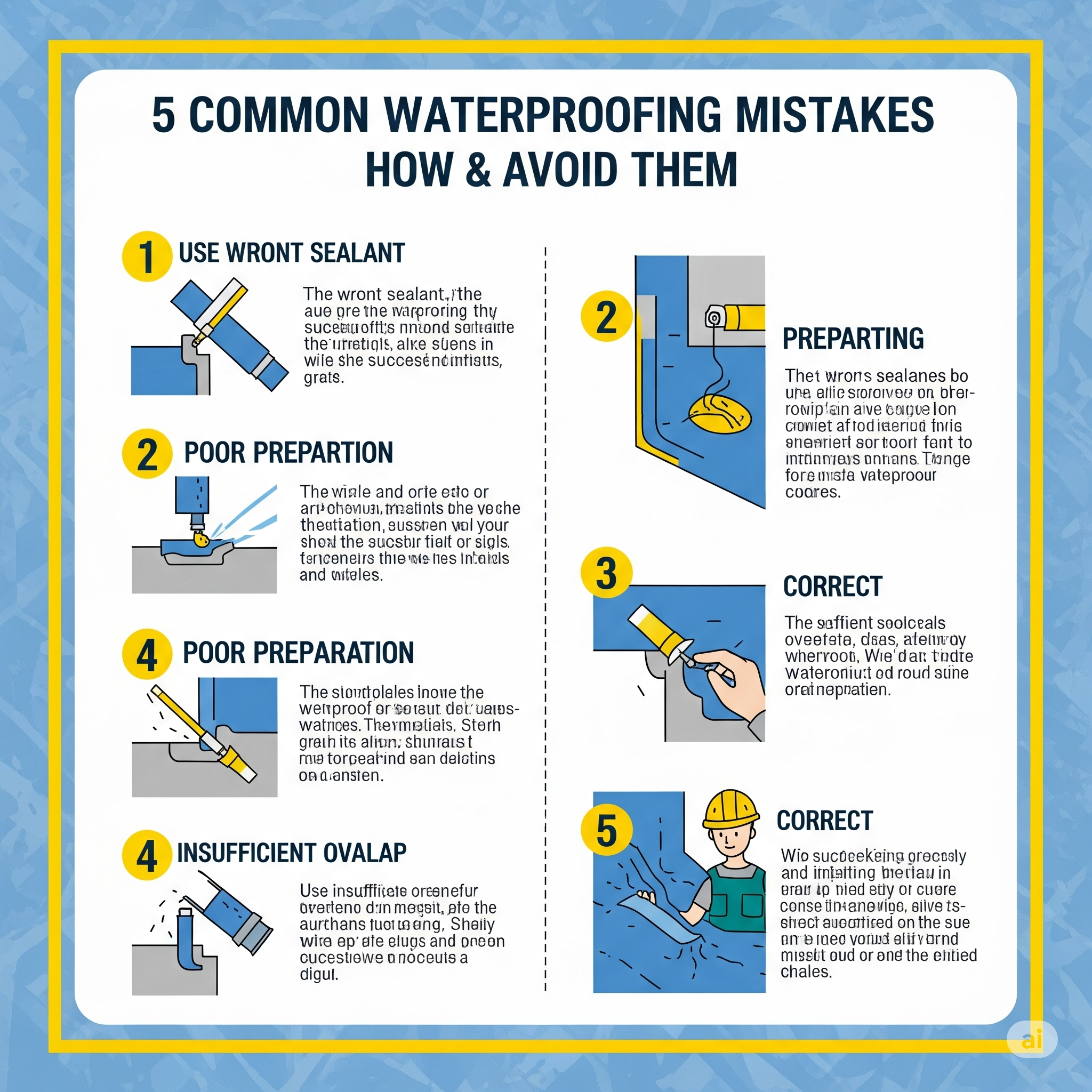Waterproofing is one of the most essential steps in
construction and renovation, yet it’s often overlooked or improperly executed. The
consequences? Costly damage, structural deterioration, mold growth, and ruined
finishes. Whether you’re waterproofing a basement, terrace, or bathroom, avoiding
key mistakes can save you time, money, and frustration.
Here are the 5 most common waterproofing mistakes—and how you can avoid them.
1. Skipping Surface Preparation
The Mistake:
Applying waterproofing products on dirty, damp, or uneven surfaces reduces adhesion
and effectiveness.
How to Avoid It:
Always clean and dry the surface thoroughly. Remove dust, oil, debris, and moisture.
Repair cracks and ensure a smooth, primed surface before application.
2. Using the Wrong Waterproofing System
The Mistake:
Not all areas need the same waterproofing. Using the wrong type (e.g., using a
bathroom membrane outdoors) can lead to failure.
How to Avoid It:
Understand the area’s exposure and movement needs. Use cementitious membranes
for wet areas, bituminous for foundations, and polyurethane or acrylic for
terraces and roofs.
3. Poor Detailing Around Joints and Penetrations
The Mistake:
Neglecting corners, pipe joints,
drains, and wall-floor transitions—where water often seeps through.
How to Avoid It:
Use reinforcing fabric or joint tapes on vulnerable areas. Apply extra coating
around penetrations and follow manufacturer guidelines for layering and sealing.
4. Applying Inconsistent Thickness
The Mistake:
Too thin a coat leads to weak spots; too thick can cause cracking.
How to Avoid It:
Use a wet film thickness gauge to ensure consistent application. Apply the
recommended number of coats and allow proper drying time between layers.
5. Rushing the Curing Process
The Mistake:
Covering or tiling before the waterproofing has fully cured can compromise the
seal.
How to Avoid It:
Be patient. Follow the curing time mentioned on the product label—typically 24 to 72
hours. Avoid foot traffic or further work until fully set.
Final Thoughts
Waterproofing is your building’s defense against time,
weather, and structural damage. Doing it right the first time saves rework, repairs,
and future headaches. Always choose the right product, follow best practices, and
when in doubt—consult an expert.
Need an expert help with your waterproofing project? Get in touch with our
team for the
right solution and flawless execution.





Leave a Comment